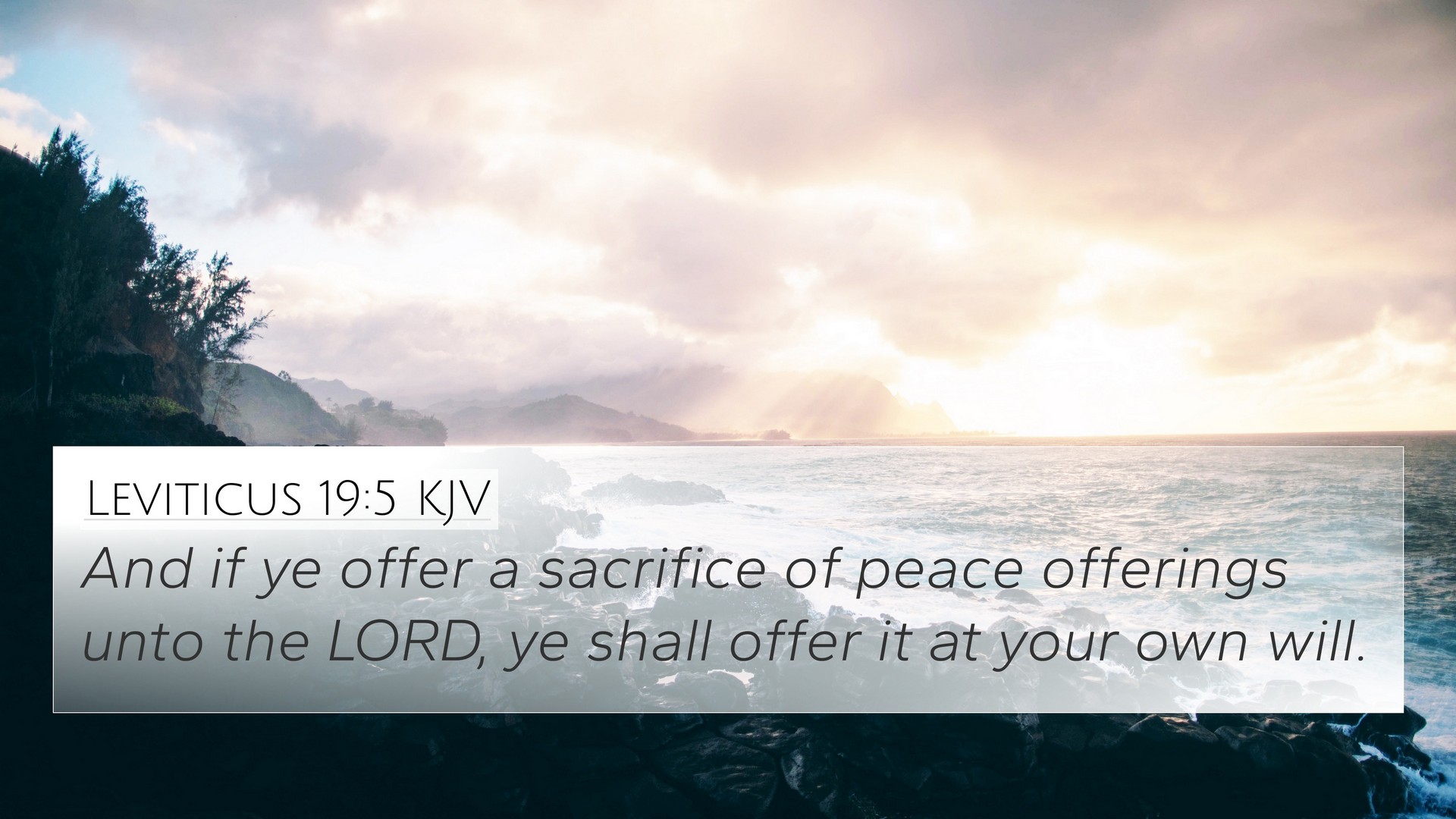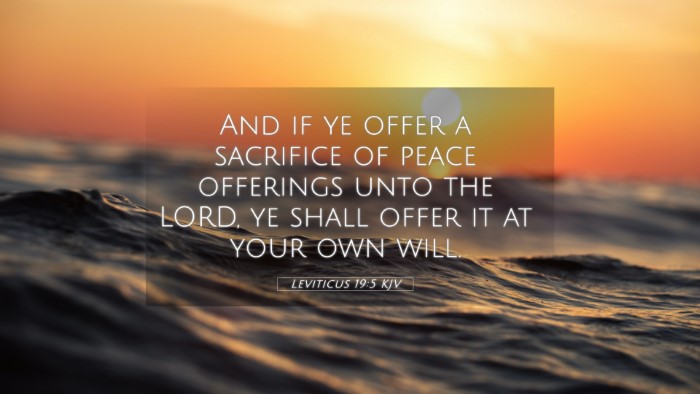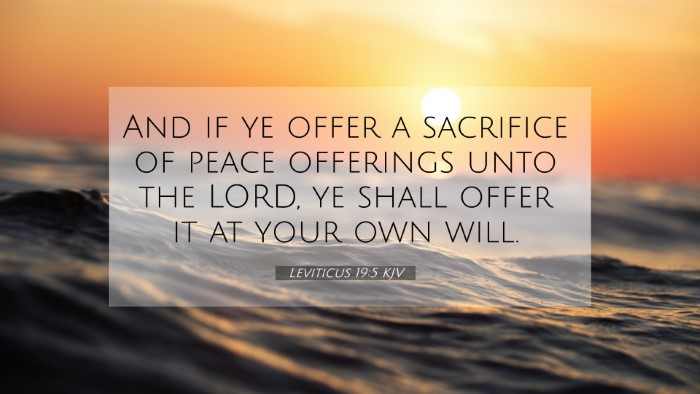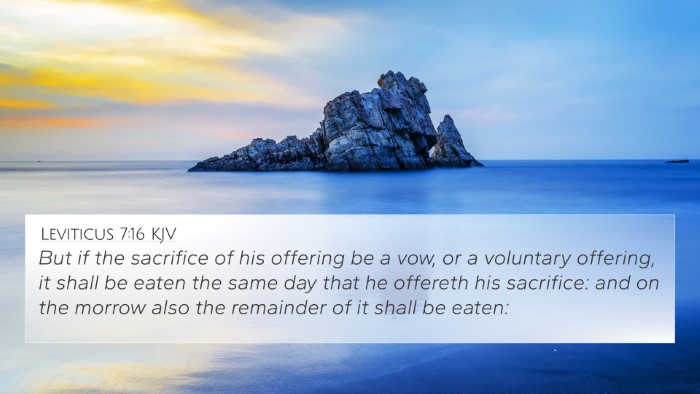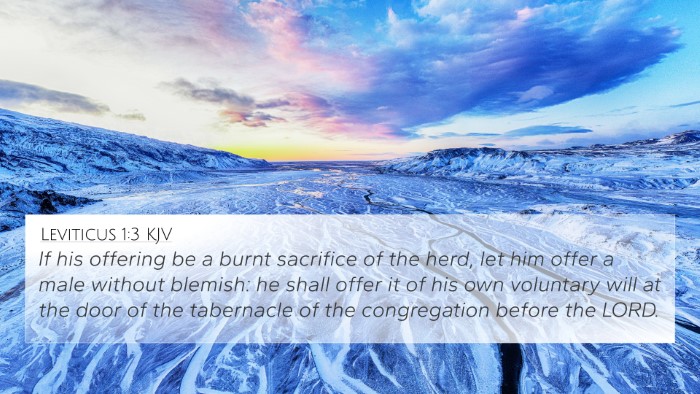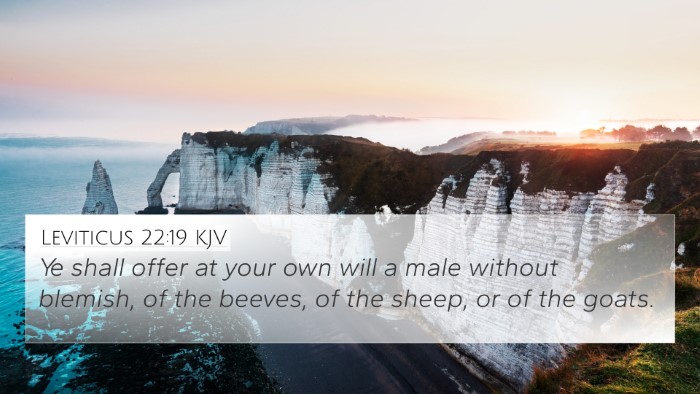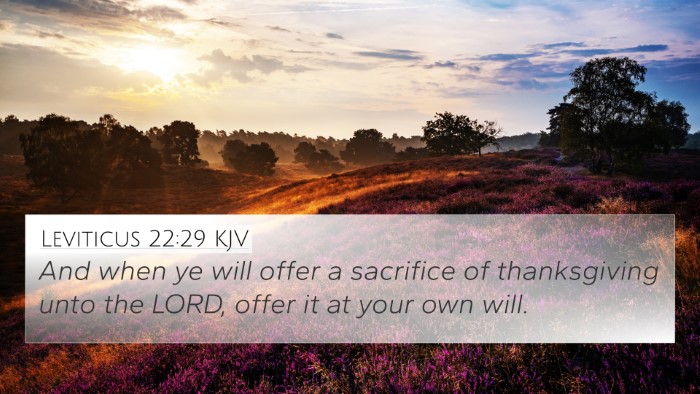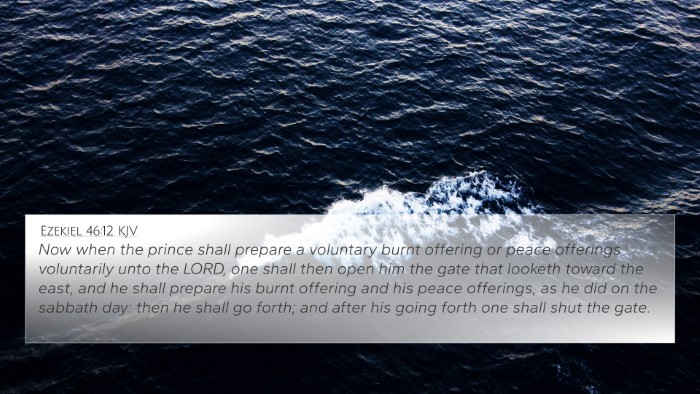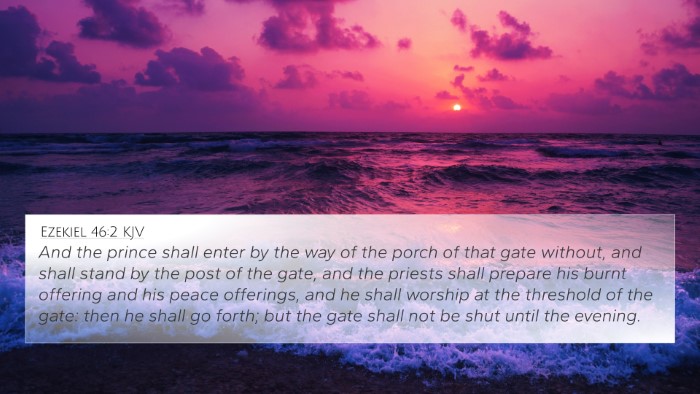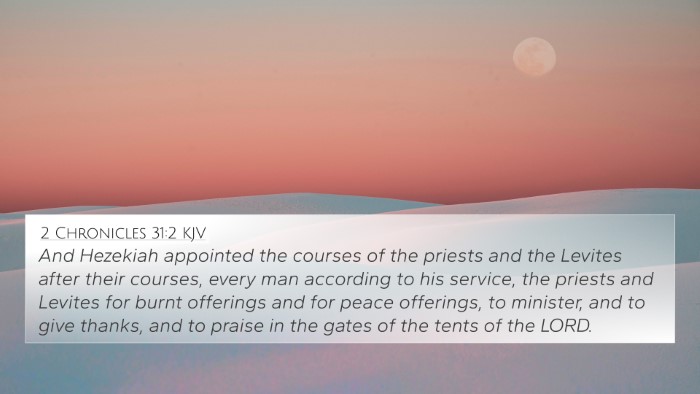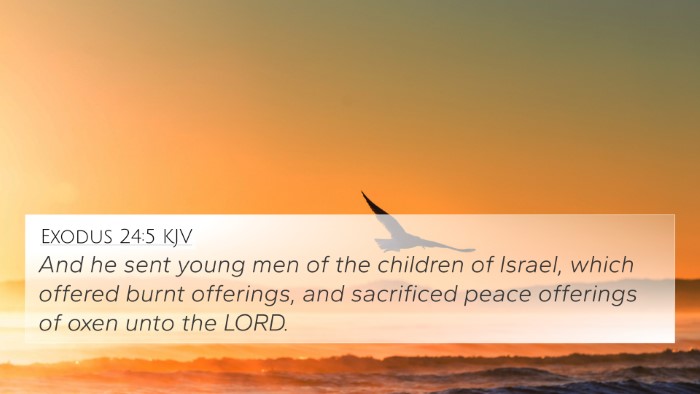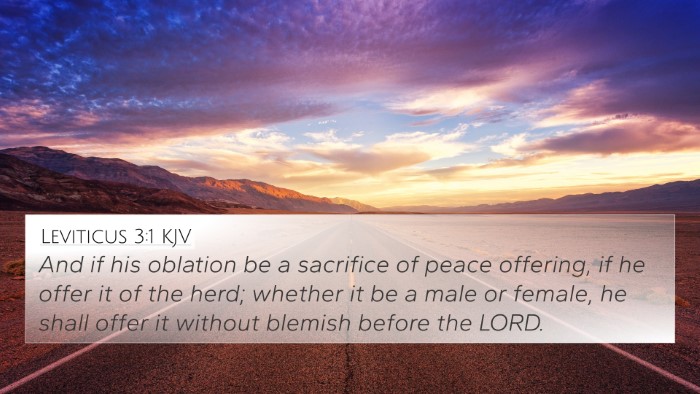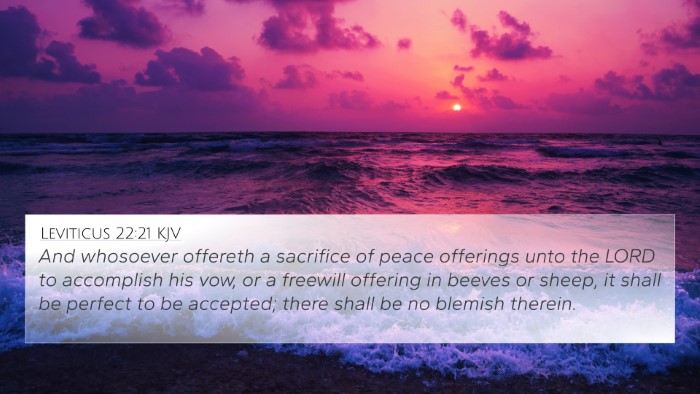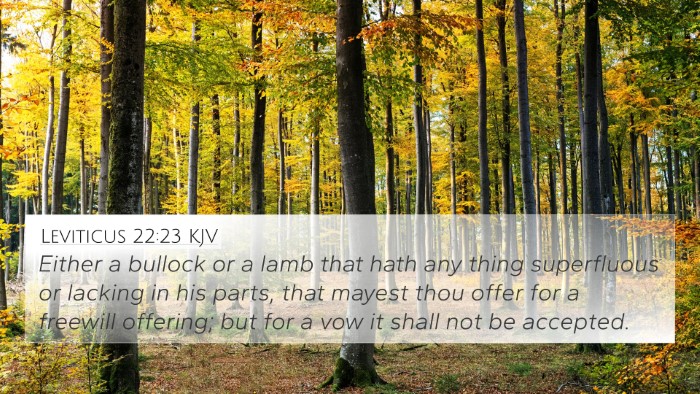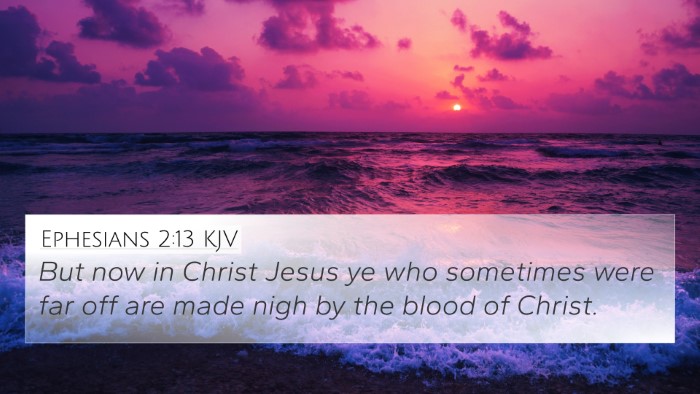Understanding Leviticus 19:5
Leviticus 19:5 states: "And if ye offer a sacrifice of peace offerings unto the Lord, ye shall offer it at your own will."
This verse emphasizes the importance of voluntary offerings in the worship of God, particularly peace offerings, which serve to express gratitude and restore fellowship with Him. The instruction underscores the significance of an individual's free will and sincere heart in their service and worship.
Insights from Public Domain Commentaries
-
Matthew Henry's Commentary:
Matthew Henry notes that this verse conveys the idea of an acceptable offering being one that is made willingly, out of a heart of gratitude rather than obligation. He emphasizes God's preference for offerings that stem from love and devotion. Henry also highlights that peace offerings reflect God's desire for reconciliation and harmony between Himself and His people.
-
Albert Barnes' Notes:
Barnes echoes the sentiment of voluntary worship, elaborating on the peace offering as a symbol of peace between God and the offerer. He explains that such offerings were also significant in fostering community among worshippers as they shared in the meal together, thus reinforcing their bond with one another and with God.
-
Adam Clarke's Commentary:
Clarke focuses on the essence of the peace offering, noting its role in fellowship and gratitude. He points out that these offerings should not be forced but should arise from a genuine desire to worship God. He adds that the institution of peace offerings reflects God's desire for His people to enjoy life and community.
Bible Verse Cross-References
To deepen the understanding of Leviticus 19:5, we can explore several related verses that enhance the theme of voluntary sacrifices and the principles behind offerings:
- Exodus 20:24: "An altar of earth thou shalt make unto me, and shalt sacrifice thereon thy burnt offerings, and thy peace offerings..." - Emphasizes offerings made to God.
- Deuteronomy 12:6: "And thither ye shall bring your burnt offerings, and your sacrifices, ... and ye shall eat there before the Lord your God..." - Highlights the fellowship aspect of offerings.
- Psalm 54:6: "I will freely sacrifice unto thee: I will praise thy name, O Lord; for it is good." - Expresses the joy of voluntary sacrifice.
- Hebrews 13:15: "By him therefore let us offer the sacrifice of praise to God continually..." - Connects to the theme of praise as an offering.
- Romans 12:1: "I beseech you therefore, brethren, by the mercies of God, that ye present your bodies a living sacrifice..." - Calls for a living and willing sacrifice in the New Testament.
- 1 Corinthians 10:31: "Whether therefore ye eat, or drink, or whatsoever ye do, do all to the glory of God." - Discusses the heart behind our actions as offerings to God.
- 2 Corinthians 9:7: "Every man according as he purposeth in his heart, so let him give; not grudgingly, or of necessity: for God loveth a cheerful giver." - Emphasizes the attitude behind giving.
Thematic Bible Verse Connections
The verse Leviticus 19:5 encourages a deeper examination of the thematic connections across Scripture:
- Voluntariness in Worship: Connects to the broader theme of God desiring heartfelt, willing worship.
- Community and Fellowship: Highlights the importance of unity among believers as seen in the communal aspects of offerings.
- God’s Desire for Relationship: The peace offerings illustrate God’s wish for continual fellowship with His people.
Conclusion: Emphasizing the Importance of Intent in Worship
In summary, Leviticus 19:5 teaches us that the heart of the worshipper is paramount in the practice of offering sacrifices to God. This verse, alongside its cross-references, serves as a reminder of the principles of voluntary and heartfelt worship that not only honors God but also fosters community among believers.
